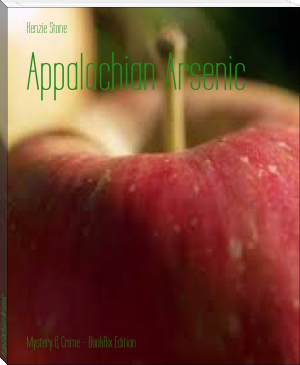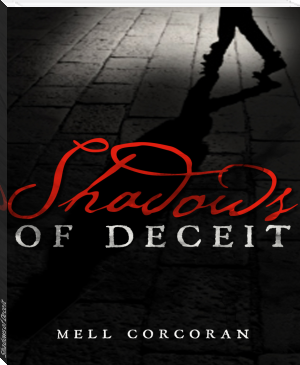A Life for a Life - Lynda McDaniel (whitelam books TXT) 📗

- Author: Lynda McDaniel
- Performer: -
Book online «A Life for a Life - Lynda McDaniel (whitelam books TXT) 📗». Author Lynda McDaniel
“No one ever played with me much.”
“Man, I’m striking out here,” I said.
“But I’ve seen it on TV,” he said. “You know, people who love each other get mad, and then they seem to love each other more when they get over it. Like they learned something that made a difference.”
I looked at him and thought, nothing wrong with that brain—and heart. I waited a beat and added, “Well, that’s how I feel about us. We just learned some things about each other—and now we know each other even better. And I’m going to try to live into that. Okay?”
He smiled for the first time since yesterday. “I’m definitely okay, especially if you’re okay.”
“Okay.” I wanted to give him a hug, but all things considered, I settled on bringing him a Dr. Pepper and going back to work. As I closed the door, I heard Abit ask, “Does this mean I still get to work here?” I chuckled and gave him a reassuring wave.
Chapter 18: Abit
––––––––
Della left! I saw her cleaning out her truck, and she told me she was going back to D.C.—just for a few days. I wudn’t so sure. She’d been awfully upset lately, and I hadn’t helped matters. She had dark circles under her eyes and seemed grumpy, though she’d been better since our talk.
Della told me Billie would keep the store open, and I was supposed to help her with big boxes and such and look after Jake. She handed me a twenty dollar bill and said that should cover things. I was happy about Jake, but I didn’t much like Billie, and she didn’t know what to make of me. Her kids treated me pretty bad at school, so I didn’t really want to help her. But I knew Della would be mad if I didn’t, and besides, I’d accepted her money.
After Della came down with her suitcase, she gave me the key to her apartment so I could let Jake out during the day. I wished I could stay with him up in that cool place of hers, but Mama would never’ve let me. I knew she’d think I’d go through Della’s closet and check out her underwears. I wished Mama didn’t think like that. I saw a TV show where some guy said that people who thought a lot of awful things about others really felt bad about themselves. That was the first time I’d heard it spelled out like that. It made me sad to think Mama might have been having a hard time herself.
I couldn’t remember how I passed the time before Della bought the store. I knew I was bored a lot, especially after Daddy took me out of school. School days were good days, even with all the teasing. I’d always been big for my age—I was up to six feet and a little more. Kids joked about my high-water pants, but I couldn’t help it. I kept growing out of them, and we couldn’t just order a new pair whenever we wanted, even with Daddy’s store account. And for some reason they made fun of my red hair. It was like Daddy’s, back when he had enough to notice. I had his freckles too. They told me I was the spitting image of Great Uncle Rory in Ireland, when he was my age.
I sure hoped Della wouldn’t be gone long, though to be honest, I was just hoping she’d come back at all.
“Oh my! Hello, hello, hello,” Nigel Steadman said as he opened his apartment door, impeccably dressed in a three-piece suit featuring an apricot velvet waistcoat. I couldn’t imagine wearing that in the heat—D.C. was already steamy in May—but that was his uniform. His weathered face cracked with a wide smile.
As he kissed both my cheeks, I could smell a faint, familiar hint of lavender aftershave. “Come in, come in, my dear. I’ve just made my tea. Have a seat. Oh, lovely to see you. I’ll just pop downstairs to Firehook for a few of those tasty scones you like. One of the pleasures of living above such a fine bakery—not to mention the aroma of butter and cinnamon wafting through my abode.”
“I won’t say no, Nigel. I’m touched you remembered.”
I had met a lot of people in my life as a reporter. I’d gotten to know many of them on a deeper level, as they let me delve into intimate details of their lives to flesh out the story. And they often grabbed my heart. I found myself outraged if they’d been wronged or bereft if they’d suffered a tragedy. I was in it with them, and I let these emotions fuel my writing, working to deliver the best possible story. Afterwards, they went on with their lives, of course, but I always felt as though I’d lost a close friend. Eventually, I couldn’t do it anymore. That and other things conspired to make me call that realtor listed on Coburn’s for sale sign.
Nigel was the exception. As I waited on the Victorian settee (more velvet, wine colored), I thought about the series of articles he helped me with after our initial collaboration. Funny fellow—so meticulous in everything, including his storytelling and forgery.
A British subject, Nigel married an American woman, and they settled in D.C. not long after World War II. Early on, he became a U.S. citizen and enjoyed dual citizenship. They split, but he stayed on in this apartment, where he earned a handsome living from expert forgery. I didn’t interview him until after his second—and last—conviction. (Not a bad record, really, for a man who’d lived well off his penmanship for thirty years.)
That first time, I was working on a story about a white-collar crime ring, and he’d agreed to contribute, anonymously. We had to meet at his home, because he was under house arrest at the time. I’ll never forget when he opened his front door. I was accustomed to the sometimes ragged, usually weary, look of many of the people I interviewed, but Nigel greeted me in sartorial splendor. I hadn’t seen a velvet waistcoat since I’d spent my junior year studying in England.
Nigel had specifically asked me to come in the late afternoon. “Let’s say four o’clock, dear?” Teatime, of course. We enjoyed some good cuppas together, even after the article ran. That first session together was almost five years ago, and Nigel’s hair—still combed back in the sophisticated style of Claude Rains or Fred Astaire—had turned completely silver.
“Here we go, my dear,” Nigel said, racing through his front door with a white baker’s box tied with string. “Tea’s up!” He darted into the kitchen and came back carrying a silver tray laden with scones, clotted cream, lemon curd, and the accouterments of tea. A brass clock delicately chimed four times, followed by a cuckoo clock adding its four calls a beat later. Expensive bric-a-brac filled every shelf, mantle, and table top, all without a speck of dust. I thought about what they’d look like in my store, under the patina of wood smoke.
As I sipped from my favorite bone china cup (a spray of violets splashed across its interior), I chuckled. “You do lead the good life, Nigel. What’s your secret these days?”
“You know all my secrets, dear.”
“All?”
“Well, almost all,” he added with a wry smile.
“Are you back in business?”
“Direct as ever, I see. Well, yes and no. Do you recall how that agent from the Treasury Department started calling on me? You were afraid I was going to go to the slammer again, but he actually hired me.”
I had a mouthful of scone and almost swallowed wrong. I made the universal motion with my hand for “keep talking!”
“Nothing really to report—I now work for The Man. I help them better understand the art of forgery. I rather like being respected for my expertise.”
I looked around his expensive apartment. It would take more than a few government jobs to pay for such good taste. “Well, that’s good, but surely the Feds aren’t paying for all of this.” Just then, the grandfather clock struck four—like a lot of grandfathers, a little behind the times.
“Good heavens, no! I’ve been lucky with my investments. A few stocks, bonds,” he said, waving his hand this way and that.
“Let me guess. You’re also on a first-name basis with a banker in the sunny Caymans?”
“No, my dear. Actually, I’ve always been partial to the Swiss.”
We both laughed, and then I tucked into another scone. I carried some fresh baked goods at the store, but nothing like these. I’d missed them.
Nigel took a big bite of scone heaped with lemon curd and drained his teacup before adding, “Your visit is welcomed, yet unexpected. How long has it been? Most unfortunate turn of events that led to your leaving our fair city. So, what brings you back?”
I dug into my purse. “I have some handwriting I’d like you to compare. This is very important to me, and I needed someone I could trust.”
Nigel chuckled. “Good heavens! I never expected you to need my services. Sounds delicious, though. Someone passing bad checks at your outpost canteen?”
“No, I have a copy of a thank-you note and the suicide note. I need to know if the same hand wrote them. We know who wrote the thank-you note, but we need your advice about the other one.”
“Oh dear, I apologize for the inappropriate humor. Let me get my loupe.”
Nigel stepped into his office. “You do realize there are many variables,” he called out from the other room. “If someone were taking drugs, for example, or experiencing the shakes or writing on a difficult surface.”
I didn’t say anything. Let him decide. He came back with his jeweler’s loupe around his head and sat down near a window. While he spent a quarter of an hour poring over the notes, I finished my tea and ate another half of a scone, as much out of nervousness as hunger. Finally, Nigel took off the loupe.
“I’m grateful that you didn’t indicate which way you hoped my decision would go. I want to be as accurate and impartial as possible.”
“And?”
“This is a forgery,” he said, holding up the copy of the suicide note. “Mind you, a very good forgery. I could have used an assistant like this.” He glanced at my face and immediately looked penitent again. He couldn’t help himself, sometimes. “I am sorry, dear. I can see this is a very sensitive matter. Does it mean what I think it does?”
“Oh, hell,” I said. “I really was hoping I was wrong.”
“What tipped you off? This is quite good, you know.”
“I’m not sure. I went to sleep one night, and in a dream, I saw both notes, side by side. They disturbed me enough to wake me. It was more like I felt something different in them than saw anything different.”
“Oh, thank heavens your courts don’t allow intuitives





Comments (0)